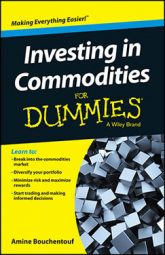Profiting from the merger activity in the mining industry can be a good investment strategy. Since the year 2000, a number of large companies have entered into merger agreements (the marriage of the Australian BHP and the British Billiton, which resulted in BHP Billiton, is a good example), and this trend is likely to continue as mining companies seek to add new capacity by merging or acquiring smaller rivals.
Due to the sustained levels of high commodity prices, mining companies have large cash reserves and are looking to spend them to beef up their operations. Mergers and acquisitions present long-term value opportunities to these companies and their shareholders, and are likely to continue in the years to come. For example, Phelps Dodge (one of the largest copper-mining companies) recently launched a simultaneous double bid to acquire Inco and Falconbridge, both independent Canadian mining companies, in a synchronized transaction valued at more than $40 billion.
The caveat of profiting from merger announcements, of course, is identifying the "hunter" and the "hunted," the acquirer and the target. Doing so isn't easy; theoretically, any given sector has an infinite number of merger and acquisition combinations. The best plan is to regularly monitor the industry for news, special announcements, or unusual trading activity. Specifically, keep your eye out for any announcements by companies in Forms 8K (filings with the SEC that announce special situations); read news stories about the companies in the industry; and remain alert to any sudden and unusual movements in the companies' stock activity.
Identifying possible merger announcements isn't an exact science, but it can yield some phenomenal returns. A lot of folks try to profit from insider information regarding merger deals, which is illegal and has led to some huge financial scandals. If you trade on information that's not public, you could end up going to jail — don't do it!
Also remember that, as a general rule, you want to buy the "hunted" before any merger announcements because the stock price of a target company tends to increase with any merger announcement, while that of the acquiring company decreases. The logic here is that the acquiring company is paying a premium for its acquisition and will have to bear the costs of incorporating this new entity within its corporate and operational structure.

